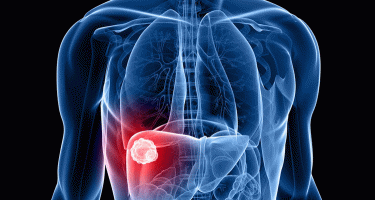
Cleveland Clinic researchers, led by Federico Aucejo, MD, Director of the Liver Cancer Program and Surgical Director of the Liver Tumor Clinic, have collaborated with Owkin to develop and validate a deep learning model that predicts survival and outcome of HCC patients following liver transplantation.
The findings were presented at the 2021 European Society of Medical Oncology (ESMO) conference.
This was performed on 298 whole-slide images stained with haematoxylin/eosin and clinical data from HCC patients who had a liver transplant at Cleveland Clinic.
The findings showed the deep learning model trained on histopathology data predicted recurrence among transplant patients both in the whole cohort and in subgroups of patients treated with or without loco-regional therapy prior to transplantation.
These results were comparable to a separate model that incorporated clinical, biological, and pathological data.
Most significantly, combinations of both histological and clinical models outperformed scoring systems currently used in the literature.
Taken together, this study demonstrates the prognostic power of deep learning applied to histology slides to predict recurrence of HCC patients following liver transplantation.
“Machine learning technology is emerging to revolutionise the world we live in. Its application in patient populations, risk stratification and personalised medicine is expected to enhance safety and allow for a more cost-effective healthcare environment.
In line with this, partnerships and alliances among healthcare networks and the tech industry will be instrumental to paving the way towards this paradigm change,” Dr. Aucejo said. “This collaboration resulted in the development of an algorithm to predict outcome in patients undergoing liver transplantation with HCC by scrutinising histopathology digital slides. This approach proved to be superior to predict tumour recurrence than conventional metrics.”
“Our collaborative research aims to advance the prediction of HCC patient outcomes and identify prognostic markers following treatment. The richness and uniqueness of Cleveland Clinic’s research cohorts, together with Owkin’s extensive expertise in developing predictive AI models, can pave the way for breakthrough, forward-thinking science and will allow the opportunity to further develop our collaboration in future research areas,” Meriem Sefta, PhD, Chief Data and Clinical Solutions said.
HCC is amongst the leading causes of cancer-related deaths in the world, representing ~90% of primary liver cancers. Currently, liver transplantation remains the best treatment for cirrhotic patients with early-stage HCC, however tumour recurrence following liver transplant is observed in 15-20% of cases, which correlates with poor survivorship.
Moreover, there are currently no reliable histological markers of relapse-free survival in HCC patients following liver transplant, which is critical in predicting patient prognosis.
Building on these results, additional deep-learning models and multimodal models developed on medical imaging, molecular, and genomics data, in addition to clinical and histopathological data, will shed further insights into diagnostic and biomarkers that may predict HCC prognosis and survivorship following treatment to improve patient care and long-term outcomes.
Source: Owkin, Inc.
The World Cancer Declaration recognises that to make major reductions in premature deaths, innovative education and training opportunities for healthcare workers in all disciplines of cancer control need to improve significantly.
ecancer plays a critical part in improving access to education for medical professionals.
Every day we help doctors, nurses, patients and their advocates to further their knowledge and improve the quality of care. Please make a donation to support our ongoing work.
Thank you for your support.